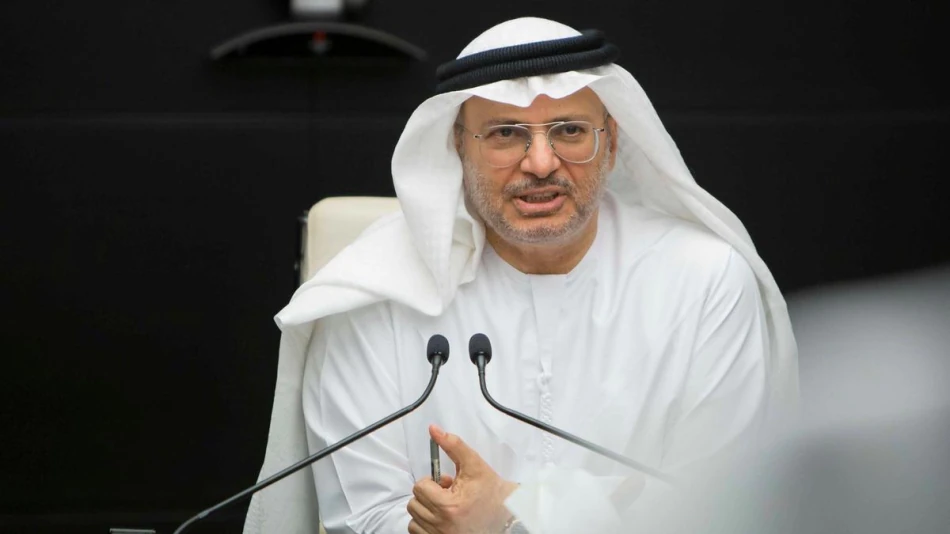
Gulf Cohesion: Qorqash on Overcoming Major Crises through Collective Spirit
UAE Doubles Down on Gulf Unity as Regional Tensions Escalate
The UAE's top diplomatic advisor has framed President Sheikh Mohammed bin Zayed's current Gulf tour as a strategic response to mounting regional pressures, particularly Israel's military actions in Gaza. The diplomatic push underscores how geopolitical crises are reshaping Gulf Cooperation Council dynamics and forcing smaller nations to seek collective security through deeper integration.
Diplomatic Strategy Amid Crisis
Dr. Anwar Gargash, the UAE President's diplomatic advisor, emphasized that Sheikh Mohammed bin Zayed's Gulf tour represents more than routine diplomacy. Writing on X (formerly Twitter), Gargash described the initiative as cementing "the concept of shared destiny" through enhanced coordination and cooperation among Gulf states.
The timing is significant. Gargash explicitly linked the tour to what he termed "Israeli aggression on brotherly Gaza," highlighting how the current conflict is driving Gulf states to reassess their regional positioning and seek stronger collective responses to external threats.
Historical Context of Gulf Unity
Tested Resilience
Gargash's reference to Gulf cohesion as "an established approach through which we have faced major crises with collective spirit and shared awareness of danger" draws on decades of regional cooperation. The GCC has weathered multiple storms together, from the Iran-Iraq War in the 1980s to more recent tensions with Iran and internal disputes like the Qatar blockade from 2017-2021.
The current diplomatic push suggests the UAE views the Gaza conflict as another defining moment requiring coordinated Gulf response, despite the complex relationships many Gulf states maintain with both Israel and Palestinian causes.
Strategic Implications
Balancing Act
The UAE's emphasis on Gulf unity comes as the region navigates competing pressures. Several Gulf states, including the UAE, normalized relations with Israel through the Abraham Accords, yet public sentiment and regional dynamics demand solidarity with Palestinian causes during active conflicts.
This diplomatic tour likely aims to harmonize Gulf positions, ensuring that individual nations' policies don't undermine broader regional stability or create exploitable divisions for external actors like Iran.
Economic Considerations
Beyond security concerns, enhanced Gulf coordination serves economic interests. The region's oil producers, financial centers, and trade hubs benefit from predictable, unified approaches to regional crises that might otherwise disrupt energy markets, investment flows, or trade routes.
Broader Regional Impact
The UAE's proactive diplomacy reflects a broader trend of middle powers taking initiative during great power competition. As traditional security guarantors like the United States focus on other priorities, regional actors are building more robust local frameworks for crisis management and conflict prevention.
This approach mirrors successful regional integration models elsewhere, from ASEAN's consensus-building mechanisms to the EU's crisis response coordination, suggesting Gulf states are institutionalizing lessons learned from previous regional upheavals.
Most Viewed News

 Sara Khaled
Sara Khaled






